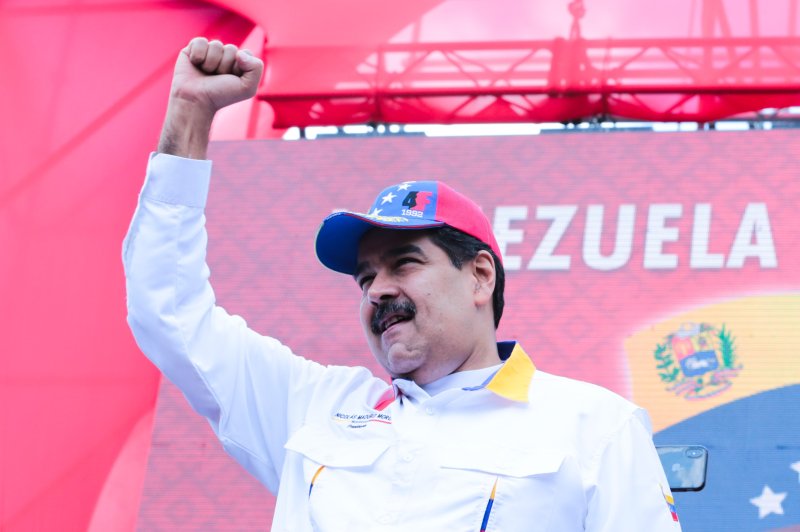A referendum to annex an oil-rich region of Guyana, backed by Venezuelan President Nicolas Maduro received support from 95% of voters on Sunday. File Photo by Prensa Miraflores/EPA-EFE
Dec. 4 (UPI) -- Voters in Venezuela voted on Sunday to make the disputed oil-rich Essequibo region a state, appearing to set up a clash with Guyana, which has long claimed the same region in a showdown of South American countries.
The Venezuelan National Election Council said voters selected "yes" more than 95% of the time in response to each of the five questions included in the referendum.
The fifth question, which asked if Venezuelans agreed to "the creation of the Guyana Essequibo state" and its incorporation into the map of Venezuelan territory, received a "yes" vote from 95.9% of voters, election officials said.
Venezuelan President Nicolas Maduro, who is facing re-election next year, called for the resolution but did not make it clear how the country would enforce it. Maduro called the vote "historic."
"We have taken the first steps of a new historic stage in the struggle for what belongs to us, to recover what the liberators left us," Maduro said after the vote.
Guyana, which has run the region for a century, has long claimed an 1899 arbitration gave the region to it when the country was still a colony of Britain. Maduro dismissed the agreement as a relic of imperialism.
Officials in Guyana railed against the vote and election. Guyana's President Irfaan Ali accused Maduro of trying to intentionally create a conflict with his country.
Guyana called the referendum an "existential threat" to the country while the Organization of American States had called for a pause in the referendum vote.
Before the vote, the International Court of Justice called on Venezuela to not take "any action which would modify the situation that currently prevails in the territory in dispute." Venezuela, though, does not recognize the ICC's jurisdiction.
Maduro has managed to hold onto power after a disputed election in 2018 that led to the West backing away from him, along with heavy sanctions when he rejected new elections and ignored calls to leave office.















